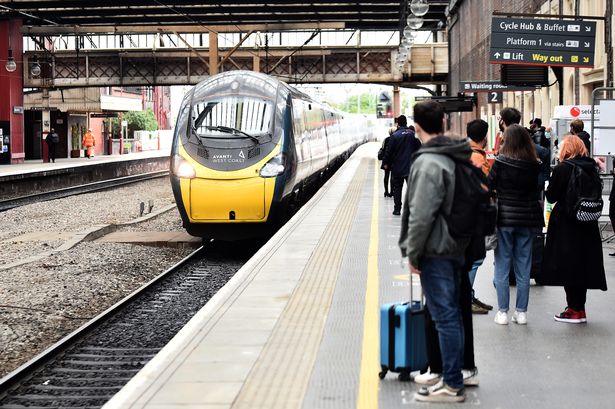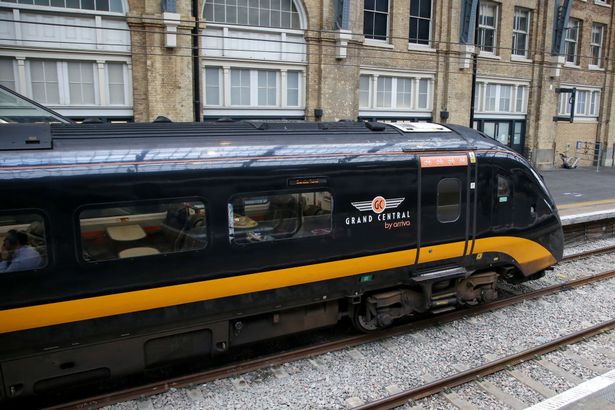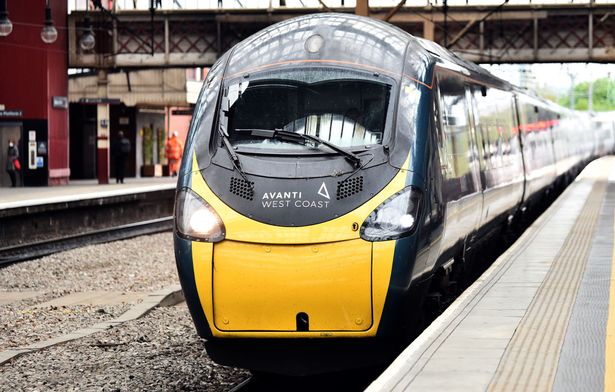If approved, the ambitious project which will also stop at Gatwick Airport, could see its first trains running by December 2026
A new direct rail service aims to reshape long-distance travel between two of the UK’s most iconic cities — Brighton and Newcastle.
Spearheaded by the Arriva Group under its Grand Central brand — which also runs services connecting Sunderland and Bradford with King’s Cross in London — the proposal is currently under review by the Office of Rail and Road (ORR).
Current train routes between Brighton and Newcastle typically require passengers to change in London. The proposed service would eliminate this need, offering a seamless, direct connection that links not only these two cities, but also a host of towns and transport hubs along the way.
READ MORE: UK set to launch £1billion 105-mile long Tube line with trains every 5 minutes
The full planned calling pattern of the route is: Newcastle, Durham, Darlington, Northallerton, York, Doncaster, Sheffield, Derby, Burton-on-Trent, Birmingham New Street, Warwick Parkway, Banbury, Oxford, Reading, Wokingham, Guildford, Redhill, Gatwick Airport, Haywards Heath and Brighton.
The new service aims to operate five trains per day in both directions, with each accommodating up to 300 passengers, as well as luggage space for airport travellers, onboard catering, Wi-Fi and charging points.
Enhanced connectivity will directly link underserved towns and cities with major hubs like Gatwick Airport and the South Coast, opening up new opportunities for employment, education and tourism.
Improved rail links are known to stimulate local economies, making it easier for people to access jobs and businesses to reach new markets. The direct connection to Gatwick Airport is particularly significant for communities in the Midlands and North East, offering a convenient, lower-carbon alternative to driving to London for international travel.
Arriva Group’s proposal is part of a wider European strategy to promote sustainable transport and regional integration. The company has recently invested around £300 million in a new battery-hybrid train fleet for its existing routes, underlining its commitment to innovation and environmental responsibility.
The plans are part of a broader commitment to “strengthening regional connectivity and making better use of available rail capacity”, Arriva Group said.
Managing Director of Arriva UK Trains’ Rail Services, Paul Hutchings, said: “We’re committed to connecting communities and enabling more people to travel in ways that are convenient and sustainable, so we’re very pleased to be submitting this application for the first direct service between Newcastle and Brighton, opening up new travel opportunities and making better use of available network capacity – all while building on Grand Central’s proud history of connecting traditionally underserved communities.
“This is an exciting time for Grand Central’s growth story and follows the extension of our existing access rights to 2038 as well as the recent announcement of an investment of around £300 million in a new battery hybrid train fleet for our existing routes, further underlining our commitment and ambition for rail in the UK.”
He added: “We’re very pleased to be submitting this application for the first direct service between Newcastle and Brighton, opening up new travel opportunities and making better use of available network capacity”
Chief Commercial Officer of Gatwick Airport, Jonathan Pollard, added: “We welcome Arriva’s exploration of a regular service between Gatwick, the Midlands and North East. Gatwick is keen to encourage passengers to use public transport and this enhanced connectivity would support underserved areas, while strengthening and growing our catchment.”
The proposal is awaiting regulatory approval from the ORR. If approved, the Newcastle-Brighton service could see its first trains running by December 2026. Not only would it provide a vital new north-south connection, but also make cross-country rail travel more accessible, sustainable and attractive for generations to come.


